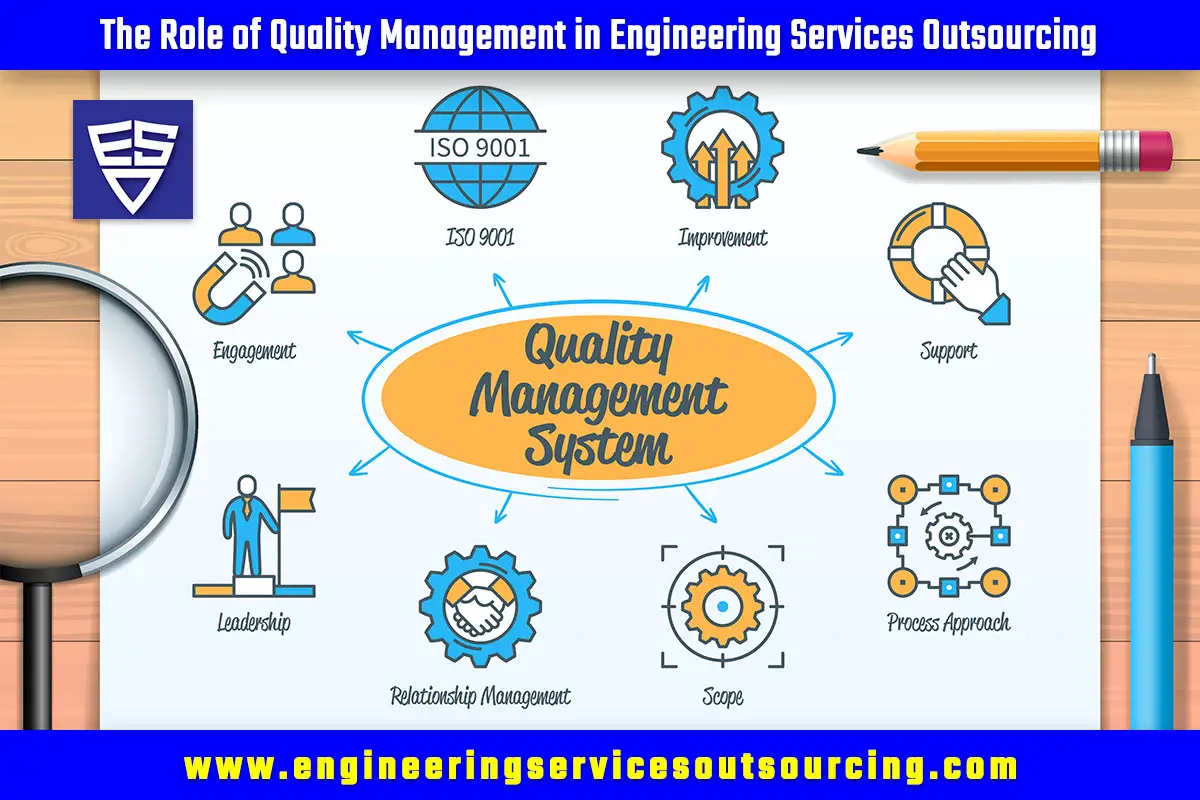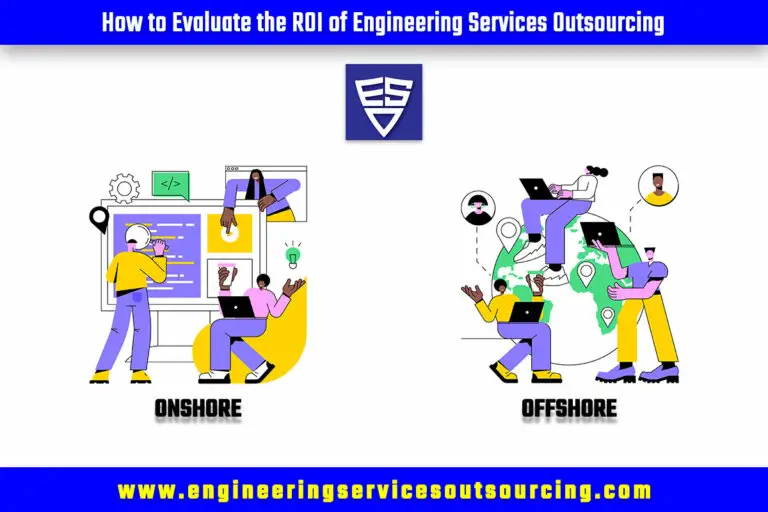
Engineering services outsourcing (ESO) has become increasingly popular in recent years, with companies turning to external service providers to take on various engineering tasks. While this has many benefits, it also creates unique challenges that must be managed to ensure the success of the project. One of the critical components of effective ESO is quality management. In this article, we’ll explore the role of quality management in ESO and the importance of implementing robust quality management processes.
Table of Contents
What is Quality Management?
Quality management is a process-oriented approach that focuses on ensuring that an organization’s products or services meet or exceed customer expectations. It involves identifying the customer’s needs, defining quality standards, and establishing procedures and processes to meet those standards consistently.
In the context of ESO, quality management refers to the processes and systems used to ensure that outsourced engineering services meet the desired quality standards. It includes managing the quality of work produced by the service provider, ensuring compliance with regulatory requirements, and managing the risks associated with outsourcing.
The Importance of Quality Management in ESO
Effective quality management is crucial for the success of any outsourcing project, but it is particularly important in ESO. The following are some of the key reasons why quality management is so critical in this context:
01) Ensuring Consistent Quality:
Consistency is essential in ESO, and quality management processes are critical to ensuring that the quality of work remains consistent throughout the project. This is particularly important when multiple service providers are involved, and there is a need to ensure that work is performed consistently across all teams.
02) Meeting Regulatory Requirements:
ESO projects often involve work that is subject to regulatory requirements. Quality management processes can help ensure that the work meets these requirements, reducing the risk of non-compliance and associated penalties.
03) Managing Risk:
Outsourcing always involves some level of risk, and effective quality management can help mitigate those risks. By identifying potential risks and developing strategies to manage them, companies can minimize the likelihood of project delays or other problems that can arise during the project.
04) Improving Customer Satisfaction:
Ultimately, the success of any ESO project depends on the satisfaction of the end customer. By implementing robust quality management processes, companies can ensure that the work produced by the service provider meets or exceeds customer expectations, improving customer satisfaction and helping to build long-term relationships.
05) Implementing Quality Management Processes in ESO
Implementing effective quality management processes in ESO requires careful planning and attention to detail. The following are some best practices for implementing quality management processes in ESO:
06) Develop Clear Quality Standards:
The first step in effective quality management is to define clear quality standards that will guide the work of the service provider. This should include not only technical specifications but also other factors that can impact the quality of the work, such as communication protocols and project management processes.
07) Choose the Right Service Provider:
The service provider’s ability to meet quality standards is a critical factor in the success of the project. When selecting a service provider, companies should evaluate the provider’s quality management processes, including their ability to document and track work processes, ensure compliance with regulations, and manage risks.
08) Establish Communication Protocols:
Effective communication is crucial in ESO, and clear communication protocols are critical to ensuring that the service provider understands the quality standards and requirements. Companies should establish communication protocols that define the frequency, format, and channels of communication between the service provider and the company’s internal team.
09) Monitor and Measure Quality:
Monitoring and measuring the quality of work produced by the service provider is essential to ensuring that quality standards are met consistently. This can involve conducting regular quality audits, using key performance indicators (KPIs) to track progress, and implementing continuous improvement processes to address any issues that arise.
Effective quality management is essential to ensure that the outsourcing of engineering services results in high-quality deliverables that meet the client’s requirements. A robust quality management system can help the outsourcing company identify, monitor, and mitigate risks associated with the project, thereby improving the overall quality of the work delivered.
One of the key challenges in outsourcing engineering services is the lack of control over the outsourcing partner’s processes and practices. However, a quality management system can help bridge this gap by establishing a framework for quality assurance and control. Here are some ways in which quality management can play a significant role in engineering services outsourcing:
10) Setting Quality Standards:
A well-defined quality management system establishes clear quality standards that the outsourcing company and the service provider need to adhere to. This ensures that the deliverables meet the required quality standards, and any deviations are identified and corrected promptly.
11) Continuous Monitoring:
Effective quality management involves continuous monitoring of the outsourcing partner’s performance. Regular audits and reviews help identify any quality issues and allow for timely corrective action. This ensures that the outsourcing company is always aware of the quality of work being delivered and can take corrective action to maintain the desired quality standards.
12) Risk Management:
A quality management system can help identify potential risks associated with the outsourcing project, such as project delays or non-compliance with quality standards. The outsourcing company can then take appropriate measures to mitigate these risks, such as establishing contingency plans or implementing additional quality checks.
13) Improving Productivity:
A quality management system helps streamline the outsourcing process, reducing the time and effort required to manage the project. This, in turn, increases productivity and allows the outsourcing company to focus on core business activities.
14) Building Trust:
A well-established quality management system can help build trust between the outsourcing company and the service provider. By ensuring that the deliverables meet the required quality standards, the outsourcing company can establish a reputation as a reliable and trustworthy partner.

Conclusion:
In conclusion, effective quality management plays a critical role in ensuring the success of engineering services outsourcing projects. By establishing clear quality standards, continuous monitoring, risk management, improving productivity, and building trust, the outsourcing company can achieve high-quality deliverables that meet the client’s requirements.
Relates Article:






